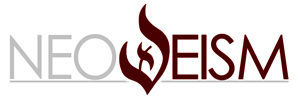In the digital age, the landscape of faith and spirituality is undergoing a transformation, one that is as profound as it is inevitable. Digital Deism, a modern iteration of deistic philosophy, is emerging as a viable path for those seeking a rational approach to spirituality. This movement, deeply rooted in the core principles of Neo-Deism, finds fertile ground in the online communities that are reshaping how we connect, learn, and share beliefs.
Historically, Deism rose in the Enlightenment as a response to the rigid dogmas of organized religion. Thinkers like Voltaire and Thomas Paine championed the idea of a rational faith, one that acknowledged a Creator but rejected the supernatural claims of revealed religion. This Creator, or First Cause, set the universe in motion, governed by unchanging natural laws, but refrained from intervening in human affairs. This perspective aligns seamlessly with the modern understanding of the universe, where scientific inquiry and reason are paramount.
In today’s context, the internet serves as a digital agora, a space where ideas can be freely exchanged and explored. This is where Digital Deism comes into play, presenting a rational alternative for those disillusioned with traditional religious narratives yet unwilling to abandon a belief in a higher power. Through forums, social media groups, and online publications, Digital Deism facilitates discourse that is both intellectually rigorous and spiritually fulfilling.
One might draw parallels between this digital evangelism and missionary work, albeit in a form that eschews dogma for dialogue. Unlike traditional missionaries who spread faith through conversion, digital deists aim to spark curiosity, encouraging individuals to question, explore, and ultimately, arrive at their own understanding of divinity. This approach resonates particularly with those who value autonomy and free will, core tenets of Neo-Deism.
The philosophical depth of Digital Deism lies in its synthesis of reason and spirituality. It acknowledges the limitations of human understanding while advocating for a continuous pursuit of knowledge. Critics might argue that this approach lacks the emotional and communal aspects of traditional religions. However, Digital Deism compensates by fostering communities that are inclusive, diverse, and united by a shared commitment to rational inquiry.
Practically, embracing Digital Deism means living a life informed by scientific understanding and ethical principles derived from natural law. It challenges individuals to act responsibly, recognizing the impact of their choices within a rationally ordered universe. This perspective encourages environmental stewardship, ethical innovation, and a profound respect for the interconnectedness of all life.
In conclusion, Digital Deism offers a compelling model for modern spiritual exploration. It invites individuals to partake in a journey that is as much about seeking truth as it is about embracing uncertainty. By leveraging the power of online communities, Digital Deism stands as a testament to the enduring relevance of reasoned faith in an increasingly interconnected world. This movement, while rooted in centuries-old principles, continues to evolve, adapting to the needs and aspirations of contemporary seekers of truth.
